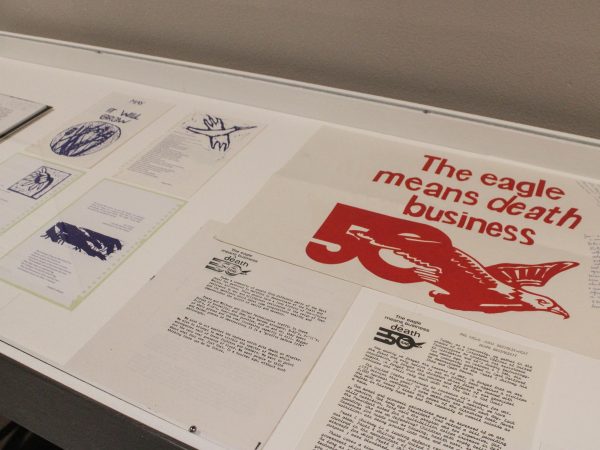UMass professor gives lecture on drinking water
“We, as a society, are very good at creating water contaminants.”
AMHERST — Professor David Reckhow of the Civil and Environmental Engineering Department at the University of Massachusetts Amherst received the Chancellor’s Medal and gave a distinguished faculty lecture titled “Drinking Water in Crisis: Lead, Lignin, and Legionella” last week.
The audience was filled with Reckhow’s family and friends and many of his students.
Reckhow began the presentation by recalling his childhood outside Buffalo, New York. Growing up in the 1960s, he used to play outside in the rivers by his home. This is what inspired him to go into the environmental field, he said.
Reckhow summarized the major achievements in water treatment history. For example, figuring out that water, not “bad air,” could carry diseases like typhoid and cholera, deciding to put chlorine in water supplies to disinfect and eventually learning that chlorine could cause disinfectant byproducts in the water.
“We, as a society, are very good at creating water contaminants,” Reckhow said.
Reckhow then shifted the discussion to lead in the water supply. Lead exposure can cause major health issues, including cognitive and reproductive effects, he said.
Lead was very prevalent in household products from the 1920s to 1940s. Lead could be found in paint, leaded gasoline, plumbing fixtures and other products. Replacing miles of lead pipes can be time-consuming and extremely expensive, he said. Many communities have never replaced them, Reckhow said, especially in lower-income areas.
This issue gained national headlines last year in the case of Flint, Michigan.
In a desire to save money, the Flint government decided to stop buying water from Detroit and switched to the Flint River. This water was more corrosive than the Detroit water, which led to the leaching of lead from the pipes contaminating the water. After media brought attention to the issue, Reckhow and three graduate students drove to Flint to run tests on the water.
As a solution, Reckhow suggests monitoring the pH and alkalinity of the water to ensure it is not corroding the pipes.
Going forward, Reckhow advocated for a more decentralized system for water supply and treatment. He said he thinks developing cities have an opportunity to make smarter choices in regards to planning their water systems.
“We need to value knowledge, even when it is inconvenient. No alternative facts,” Reckhow said.
Email Mackenzie at [email protected]










